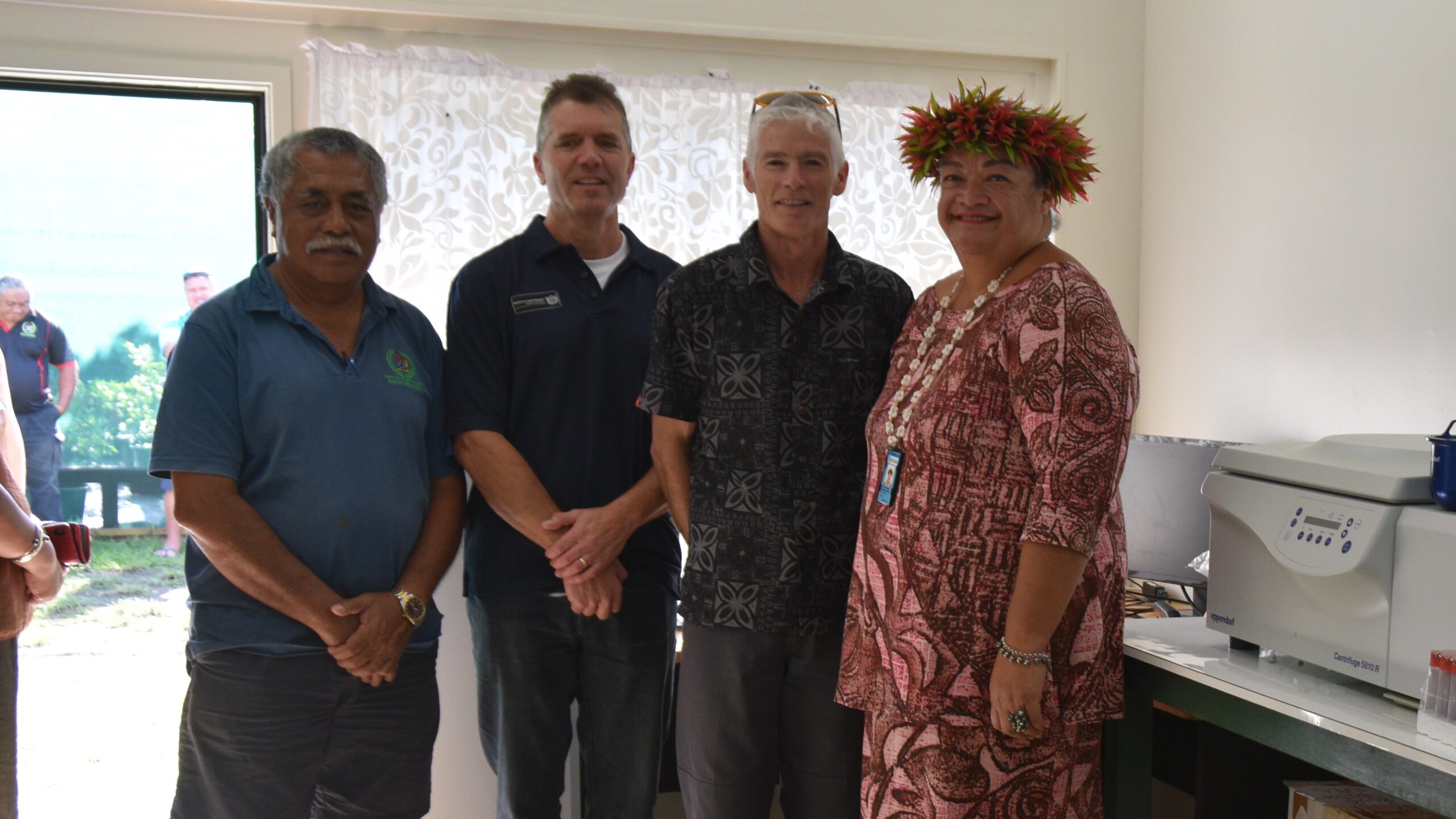New equipment to detect foreign diseases in Cook Islands livestock
Friday 20 May 2022 | Written by Caleb Fotheringham | Published in Local, National

Ngatoko Ngatoko, Tom Rawdon, Andrew McFadden and Temarama Anguna-Kamana at the handover of disease surveillance equipment to Ministry of Agriculture. Photo: Caleb Fotheringham/22051901
New equipment donated to the Ministry of Agriculture will help detect any foreign diseases potentially present in Cook Islands livestock.
Andrew McFadden and Tom Rawdon donated the equipment on behalf of New Zealand’s Ministry of Primary Industry funded by the Ministry of Foreign Affairs and Trade.
The main piece of equipment donated was a centrifuge valued at around $30,000.
The machine allows livestock blood samples to be tested by separating the serum from the red blood cells, the serum can then be tested for disease agents.
Ministry of Agriculture Secretary, Temarama Anguna-Kamana said the industry was very grateful for the new equipment.
“We humbly appreciate this very expensive piece of equipment that has been donated to the Ministry of Agriculture to build capacity in our staff in regards to livestock surveillance in our community,” Anguna-Kamana said on Wednesday during the handover.
“We all know we are now being surrounded by various types of disease not only affecting human health but animal health.”
McFadden and Rawdon are in the Cook Islands under the Animal Biosecurity Pacific Partnership Programme – a six-nation programme that aims to improve biosecurity in the Pacific.

McFadden said there was a growing awareness that New Zealand has to support its neighbouring Pacific islands.
“When you look at the Cook Islands and some of the other Pacific Islands there’s not a single government veterinary in the country, so it’s really hard to manage animal health when you don’t have those qualified people but also equipment and support and knowledge,” McFadden said.
“One of the key areas focus on significant exotic animal disease.”
McFadden said there had been a lot of publicity recently on African swine fever – a highly contagious deadly viral disease affecting both domestic and feral pigs – which is spreading through Asia and Papua New Guinea and is a risk to the Pacific.
Rawdon said other livestock diseases like foot and mouth and lumpy skin were also concerns to the Cook Islands.
“There are a lot of important transboundary diseases that are sort of on the doorstep,” Rawdon said.
During the handover, McFadden said the programme was looking to assist with some base line surveillance over the next year.
“From that we can understand what disease agents may be affecting production and potentially causing human health impacts.”




















































